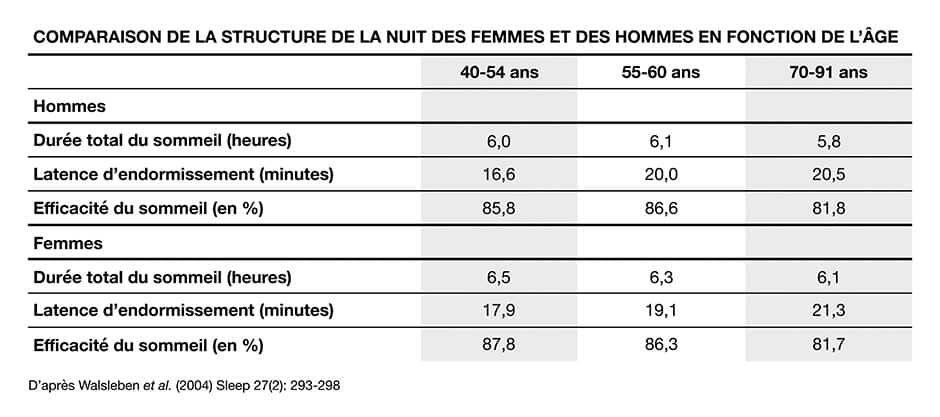How does age affect sleep?
Sleep hygieneSleep changes with age : seniors tend to sleep for shorter periods, and especially less well. These changes are generally normal, but can have consequences for cognitive disorders development.
Sleep change with age
Sleep needs decrease with age. A newborn sleeps between 14 and 17 hours, a child between 9 and 11 hours, an adult between 7 and 9 hours, and a senior between 6 and 8 hours. These are averages: variations depend on individual needs.
There are 4 major changes between childhood and old age:
- Sleep time
- Sleep efficiency
- Duration of deep slow-wave sleep
- Night-time awakenings
As we age, the structure of sleep itself changes. Sleep duration and efficiency tend to decrease, while nocturnal awakenings increase.
Seniors’ sleep: changes in nocturnal rhythm
Physiological evolution affects sleep patterns. From the age of 50/60, your 7 hours of rest are interspersed with night-time awakenings, and the need to take naps reappears during the day.
The cause is a reduction in deep slow wave and REM sleep, in favor of lighter, more fragile sleep. You’re more sensitive to noise and have trouble finding a comfortable position, due to age-related pathologies (joint or muscle pain, etc.). You also tend to go to bed later and wake up earlier.
As a result, it’s not uncommon in old age to have the impression of sleeping badly, or insufficiently.
Can poor quality sleep lead to disease ?
Is there a link between circadian cycle disruption in the older population and the onset of dementia? It’s a fact that cognitive disorders are associated with sleep problems. And poor sleep quality can contribute to the onset of these pathologies.
Age-related sleep disorders can be linked to other pathologies. For example, excessive sleepiness may be a sign of depression or the development of dementia. And nocturnal behavior disorders are symptomatic of neurological diseases.
Even if these links are unproven, the fact remains that good sleep improves cognitive function and prevents the risk of dementia: sleeping well helps to eliminate toxins more efficiently, and ward off the threat of Alzheimer’s disease.
Sleep disturbances are normal for senior citizens. However, the older you get, the harder it is to tell the difference between the natural evolution of sleep and the onset of more serious nocturnal disturbances. If you have the slightest doubt, consult your doctor or a sleep therapist. You can also assess the quality of your sleep.

 Share on facebook
Share on facebook
 Share on twitter
Share on twitter
 Share on linkedin
Share on linkedin
 Share by email
Share by email